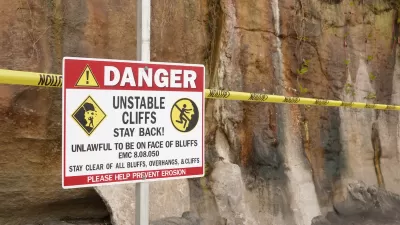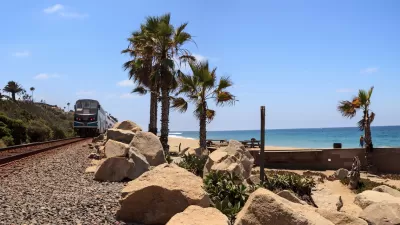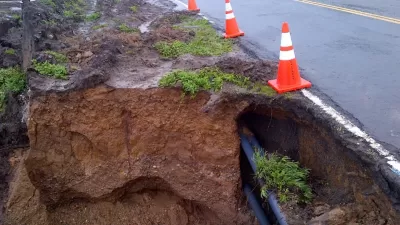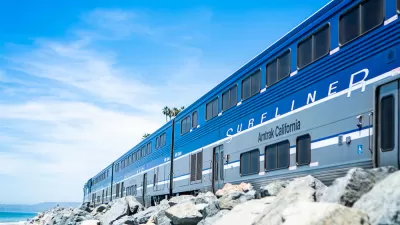New research reveals that some coastal areas are sinking by as much as 5 millimeters per year, which could threaten key infrastructure.

A new study highlights the urgency of restructuring East Coast infrastructure, showing that cities on the Atlantic are sinking by as much as 5 millimeters per year. “Global warming is causing a rise in sea levels, meaning coastal areas are particularly at risk,” explains Robyn White in Newsweek.
While entire areas are unlikely to sink into the ocean, sea level rise threatens infrastructure near the coast. “For example, significant areas of critical infrastructure in New York, including JFK and LaGuardia airports and its runways, along with the railway systems, are affected by subsidence rates exceeding 2 mm per year,” explains Leonard Ohenhen, lead author of the study.
Sea level rise and subsidence is already impacting U.S. infrastructure. On the West Coast, a key Southern California rail corridor was shut down on and off for months as a result of coastal erosion. In Northern California, the California Department of Transportation (Caltrans) completed its first-ever road relocation project in November of last year.
FULL STORY: US Cities Sinking on the East Coast, Threatening Critical Infrastructure

Planetizen Federal Action Tracker
A weekly monitor of how Trump’s orders and actions are impacting planners and planning in America.

Congressman Proposes Bill to Rename DC Metro “Trump Train”
The Make Autorail Great Again Act would withhold federal funding to the system until the Washington Metropolitan Area Transit Authority (WMATA), rebrands as the Washington Metropolitan Authority for Greater Access (WMAGA).

The Simple Legislative Tool Transforming Vacant Downtowns
In California, Michigan and Georgia, an easy win is bringing dollars — and delight — back to city centers.

In These Cities, Most New Housing is Under 441 Square Feet
With loosened restrictions on “micro-housing,” tiny units now make up as much as 66% of newly constructed housing.

Albuquerque’s Microtransit: A Planner’s Answer to Food Access Gaps
New microtransit vans in Albuquerque aim to close food access gaps by linking low-income areas to grocery stores, cutting travel times by 30 percent and offering planners a scalable model for equity-focused transit.

This City Will Pay You to Meet Your Neighbors
A North Kansas City grant program offers up to $400 for residents to throw neighborhood block parties.
Urban Design for Planners 1: Software Tools
This six-course series explores essential urban design concepts using open source software and equips planners with the tools they need to participate fully in the urban design process.
Planning for Universal Design
Learn the tools for implementing Universal Design in planning regulations.
Smith Gee Studio
City of Charlotte
City of Camden Redevelopment Agency
City of Astoria
Transportation Research & Education Center (TREC) at Portland State University
US High Speed Rail Association
City of Camden Redevelopment Agency
Municipality of Princeton (NJ)





























